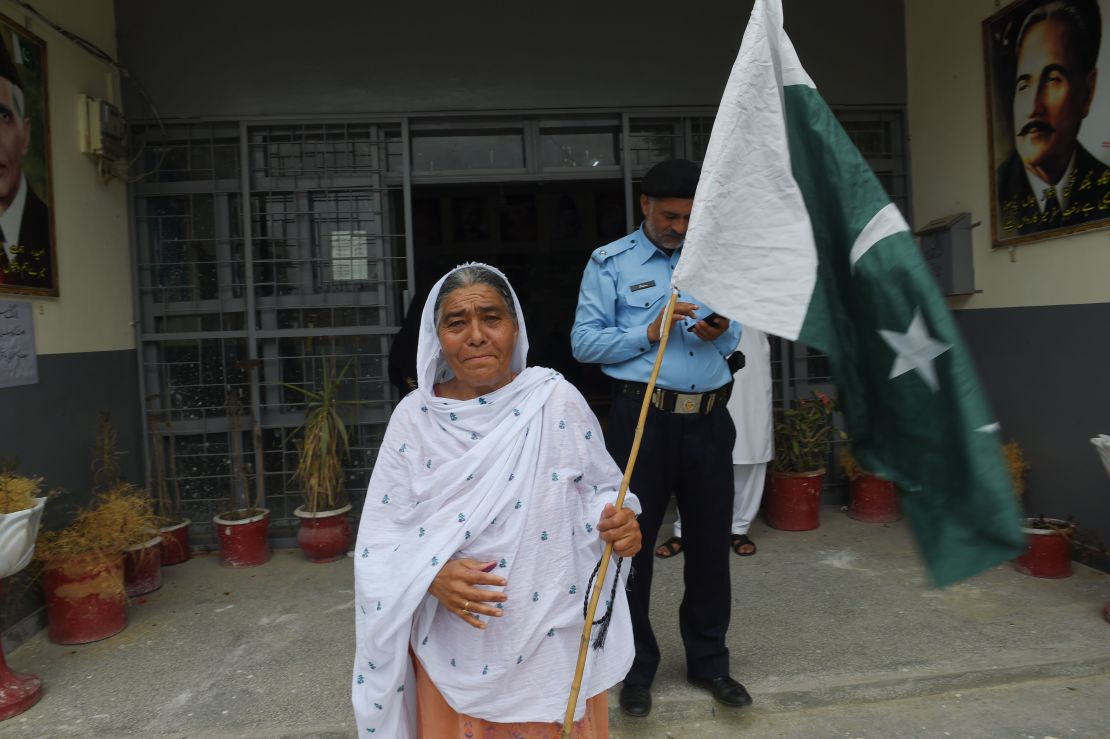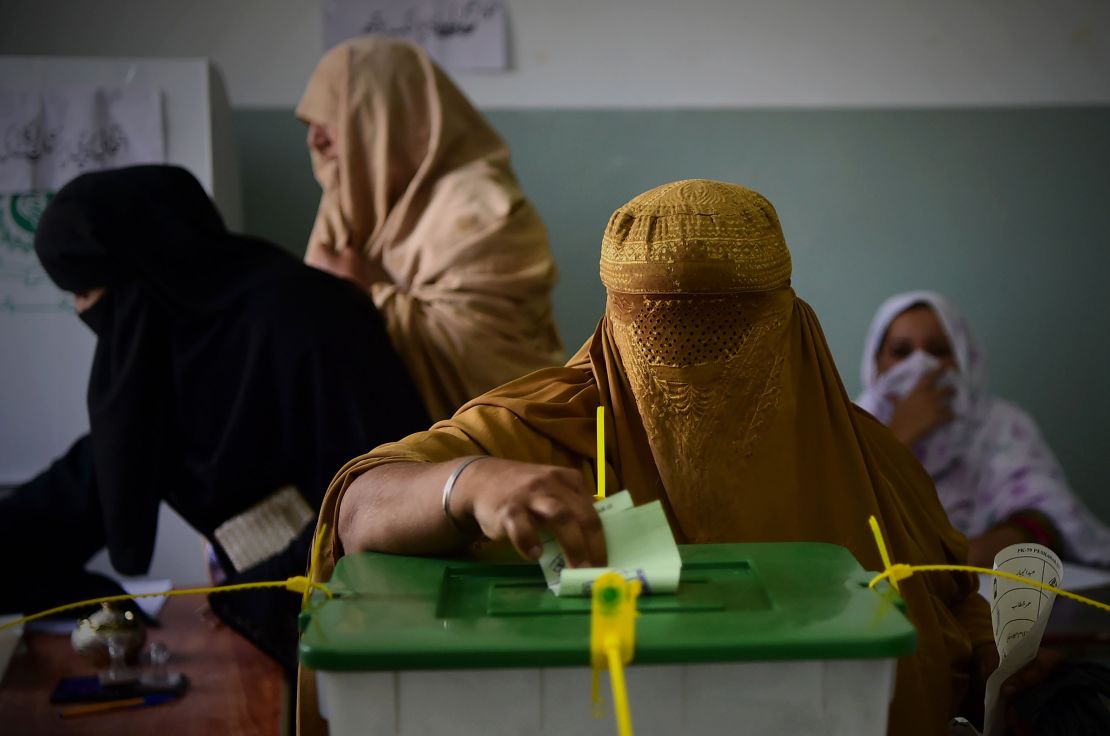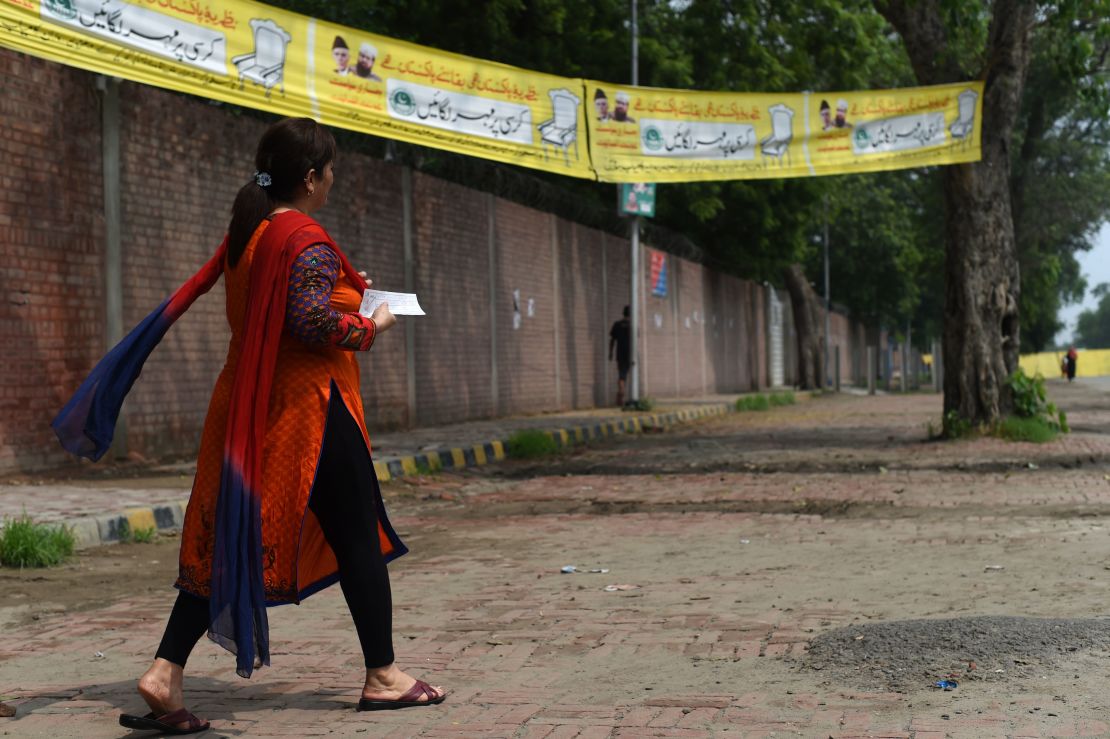Women turned out in force in Pakistan’s general election this week, shoving aside often decades of patriarchy and taboo to make their voices heard at the ballot box.
A day later, after claiming victory in a hard-fought election race, Imran Khan said that he would use his mandate to fight for those without a voice – and in deeply conservative, religious Pakistan, that can often mean women.
“My policies will be geared towards minorities, women, all the oppressed,” he said in a televised address. “My entire efforts will be to raise the rights of the oppressed.”
While official figures have not been released, women turned out in large numbers to register their voices in the pivotal election – only Pakistan’s second transition of power from one civilian administration to another.

Before the election, described as one of the most consequential in Pakistan’s short history, advocacy group Human Rights Watch released a report that found while women have a constitutional right to vote, “millions… have been de facto barred from voting through agreements among political parties, local elders, and powerful figures, using outdated customs as an excuse.”
Newspaper columnist and analyst Rafia Zakaria said the old system is crumbling. “It seemed a lot of (women) voted and that I think is hopeful. I think it’s connected to urbanization, connected to the fact that democracy is what people are coming to expect.”
Playboy cricketer to politician, Imran Khan says he’s Pakistan’s best hope
Decades of taboo broken
In the far north of the country, where voting as a woman has traditionally been difficult – if not impossible – for many years, large numbers of women queued to ensure their voices were heard.
Farzana Bibi a schoolteacher from Khyber Pakhtunkhwa province’s Lower Dir, where women were voting for the first time since the 1970s, said she voted to exercise her “basic right,” and was able to express herself at the ballot for the first time in four general elections.
“See this interesting dilemma. My family needs my salary, but they don’t provide me my basic rights of freedom of expression,” she told CNN.
“I had been deprived from casting a vote for the last three elections. This was the fourth consecutive election that came in my life when I exercised my basic right of casting my vote for the first time in my life. I am very relieved now.”

Bibi also acted as a polling officer, and said that almost all female registered voters in the area had followed through with their votes.
“I didn’t only exercise my vote but also ensure the maximum turnout at the polling station. Out of 856 (registered) women voters, 739 votes were cast – which was a big achievement.”
Meanwhile, in Balochistan, Pakistan’s restive southwestern province, long queues of female voters, lined up next to similarly snaking queues of men, spoke to how women have fought back to vote.
“This is my fundamental right to elect my candidate,” said Bibi Khadija, who voted for Imran Khan’s PTI party in Quetta, the provincial capital.
Conditioning
Zakaria said that often, women’s lifestyles, especially in rural areas, are completely disconnected from politics. So while they may not be barred from voting by their male relatives, they are conditioned not to pay attention to elections.
“There is a lifestyle that is extremely centered in the private sphere, absolutely unengaged from the election or politics, that imposes different rituals or daily routines,” she said.
“I know people in my neighborhood who I doubt would have voted, they don’t watch any TV besides religious TV, they’re constantly centered around events in the home.
“And there are people there, hardliners, who said, don’t participate in the election, it’s haram (forbidden); it’s still hard for women to leave the home, those who aren’t from liberal or urban backgrounds.”

Najma Ali, organizer of the Sarhad Rural Support Program in Peshawar, said that in the 2013 general election “local elders” had denied women their right to vote.”But this time, it doesn’t happen. In my area, women cast more votes than men.”
A lack of women’s issues discussed in election campaigns means that women don’t tend to vote en bloc, but rather based on ethnic lines or on other issues, Zakaria said.
Rukhshanda Taj, from the Balochistani town of Turbat, close to the Iranian border, said she voted “because I want promotion of education and health facilities in my area.”
Promises of security
Khan’s conservatism and promises to bring more religion into public life is comforting to some women, Zakaria said.
“He’s saying he’s going to create an Islamic welfare state. For working class and lower middle class women, that is the thing, if you can create that Medina city state that he’s promised to do, all will be right with the country.
“He (also) has this strict side, that appeals to women. In terms of safety, some women think about it in very religious terms, like, ‘in a very Islamic society I won’t be harassed.’”
She says that, often, women are unaware of their rights. Sadaf Ali, a 29-year-old health technician said that that is changing.
“Earlier we don’t know our rights and powers. But when I start education only then I realized that women do have equal rights. But ironically whenever election comes, our elders would deprive us from exercising our basic right – casting the vote.
“What kind of society is this where men decide the rights of women? Here men are considered more conservative– but women voted against their mens’ ideology.”





